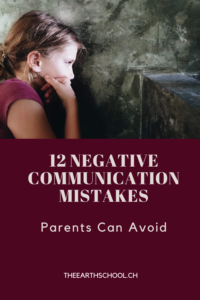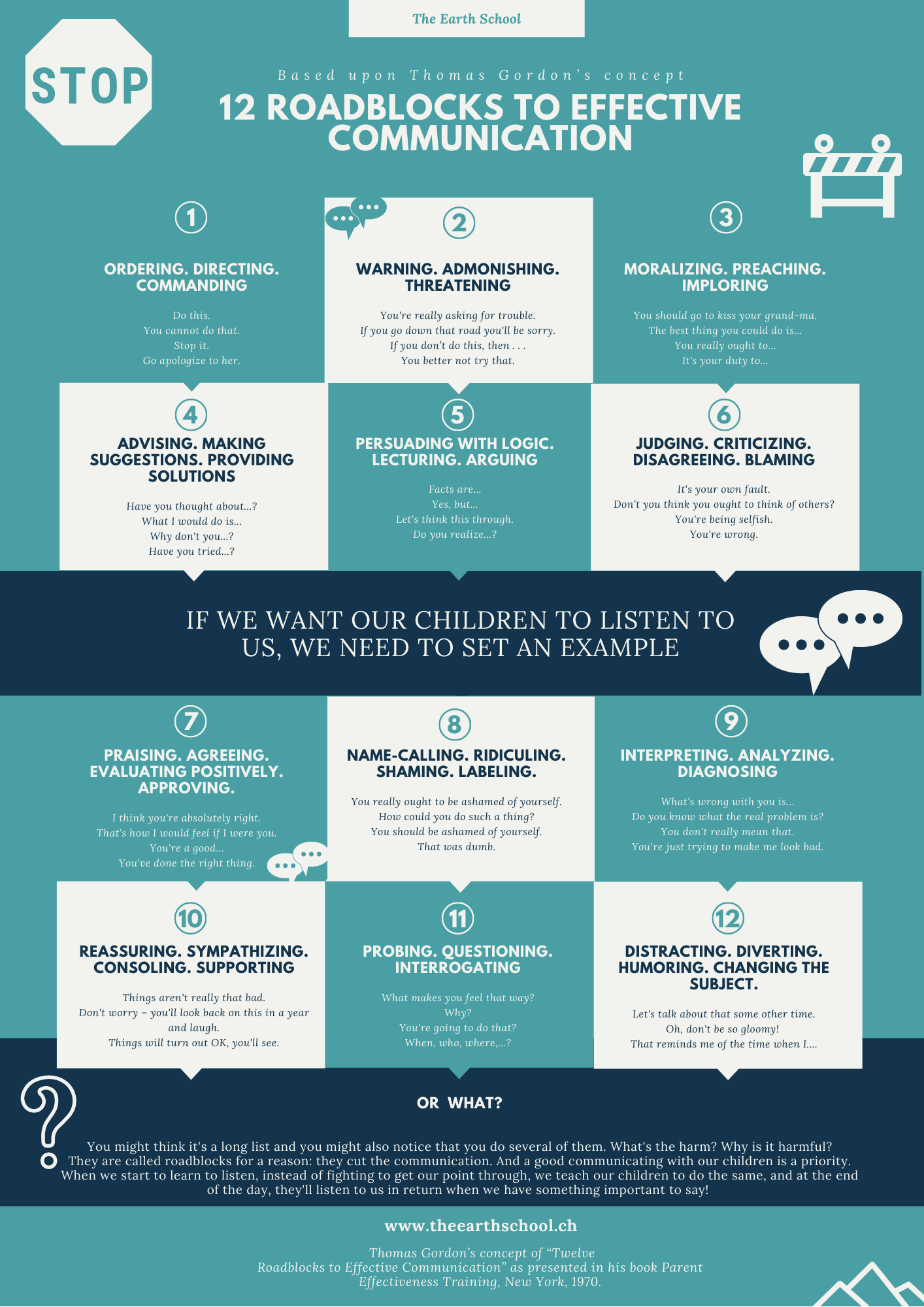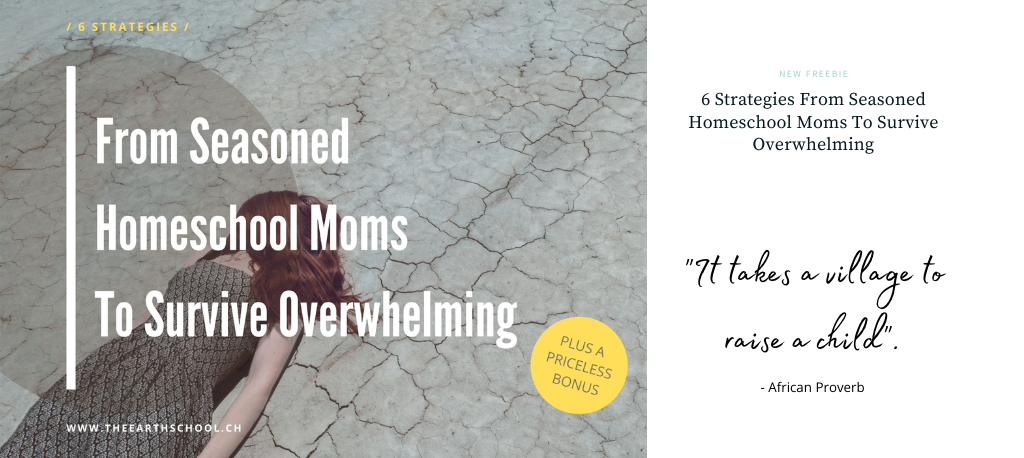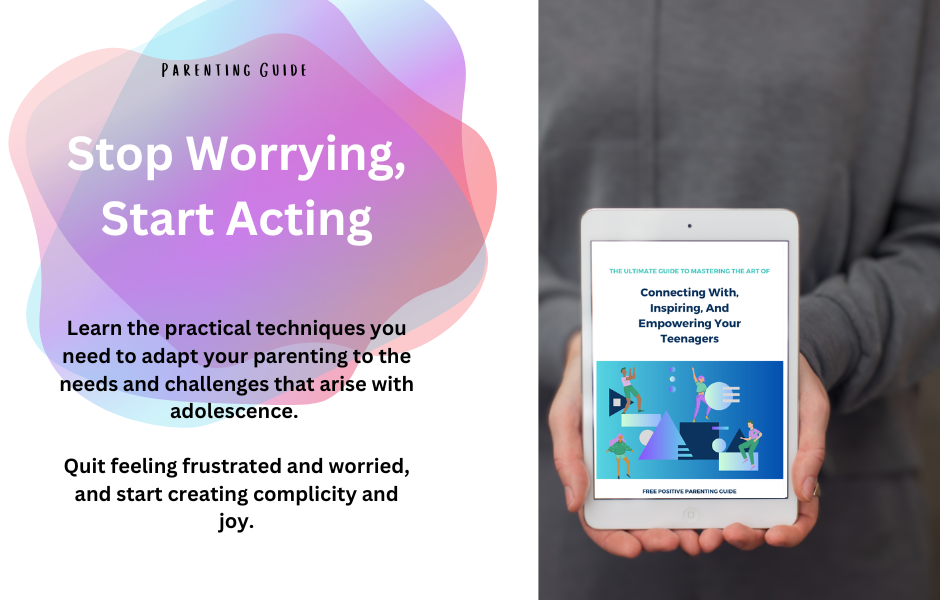
#14 12 Negative Communication Mistakes Parents Can Avoid
You’d rather listen than read? Here is the audio of the blog post.
You are a loving parent, and your child’s happiness is dear to your heart. And yet, sometimes, you can tell that the communication breaks. At some point in the conversation, your child is not listening anymore, is snapping back or having a negative behavior of some sort, and here you are, feeling frustrated and powerless to fix the situation. What happened?
There are many ways to communicate, and some of them are harmful. You might not realize it when you say it, you may not consciously know what can cause damages, but the words you choose, and the way you express them, have an impact on your children.
Don’t have time right now? Download the PDF version
Negative Communication And Its Effects
Bad communication can lead to self-esteem, self-love, and self-confidence issues as it affects our identity. Maybe you can recall a moment where your husband, a friend, or a stranger said something that hurt you? Maybe it wasn’t the actual words, but it did hurt you. Can you recall the feelings you had? You might have felt humiliated or insulted, misunderstood or dismissed.
[Tweet “Bad #communication affects the #identity”]
Humiliation, insults, misunderstanding, dismissing, or even advice, they send a message. A message that the one talking is superior and knows better. Yet, good communication, one that brings a positive outcome has to be a horizontal one. What usually happens between parents and children is that, as parents, we think we know better. And maybe it’s true. We have more knowledge, more experienced, and most importantly, we can use abstract thinking.
Abstract Thinking And Communication
This is a point I want to underline, even though I’ve done it in previous articles already. Before puberty, children cannot think abstractly. This ability grows as they grow but still, the way you think all the time (because we use it all the time) is different than their way. Children live in a concrete world, they don’t get metaphors and they certainly can’t foresee the outcomes of a situation just by imagining them. So, when you tell them things like: “I can see how this is gonna end”, well, they can’t.
 Image from www.7pace.com
Image from www.7pace.com
We are quick to hurt our children, often without any evil purpose. Because we grew up being talked to in a certain way, and we reproduce those patterns. Your number one goal, as a parent, is to keep the communication alive, to give a chance to your children to always feel connected to you.
Yet, there are many ways to break communication: ordering, advising, mocking, judging, labeling, appraising (I bet you didn’t see that one coming!),… Let’s look at the communication roadblocks that psychologist Thomas Gordon identified in his book Parent Effectiveness Training.
12 Negative Communication Mistakes Parents Can Avoid
1 | ORDERING – DIRECTING – COMMANDING
These are the entry door to a power struggle. When facing an authoritarian adult, children have two options: fear or rebellion. None of them is an outcome you’d wish, right? It can also develop resentment in the child. When you command or give orders, your child feels like his needs are ignored, and he would be right.
You must do this.
You cannot do that.
Stop it.
Go apologize to her.
2 | WARNING – ADMONISHING – THREATENING
This category is the cousin of the first one. You just need to add some threat to it. The threat can be clear or implicit, it can be a prediction of a bad outcome, either way, it is negative and usually has the opposite effect on people. Yes, when you do this, children, and people, tend to feel resentment, anger, and rebellion, and they might do exactly what they are warned not to do!
You’re really asking for trouble
If you go down that road you’ll be sorry
If you don’t do this, then . . .
You better not try that.
I warn you, if you do that . . .
3 | MORALIZING – PREACHING – IMPLORING
A vague authority is at play here, the moral code. What is underlying in the message is a proper way of conduct, a “should” and “ought” solution that brings the child to feel guilty or inadequate. The reaction might be of rebellion again, as the child wonders who says that and why he should do it. There is the idea that the child isn’t smart enough to know what’s good or not and needs help. There is a notion of emotional blackmail because there is a hidden message of “If you don’t do it, you are not a good boy/girl”.
You should go to kiss your grandma
The best thing you could do is…
You really ought to…
It’s your duty to…
Moralizing and morals are two entirely different things and are always found in entirely different people
4 | ADVISING – MAKING SUGGESTIONS – PROVIDING SOLUTIONS
This is when your mighty experience can shine. You know better and you share your knowledge. Of course, as a parent, we see a situation and we think we know how to fix it, it is tempting to just give the solution. But you are not your child, you have a different temperament, a different history, and a different mind, so what worked for you in the past doesn’t necessarily work for someone else. And giving advice implies that you think you are superior, that you know better. And last but not least, solutions and suggestions don’t allow for creative thinking on your child’s side.
Have you thought about…?
What I would do is…
Why don’t you…?
Have you tried…?
5 | PERSUADING WITH LOGIC – LECTURING – ARGUING
When you do that, you put yourself in a superior position. You know best. Just imagine a situation like this, how will your child respond to it, do you think? That’s right, he will try to defend his position, he will argue and be in a defensiveness posture. You are also saying to your child that he didn’t figure it out correctly and that he needs your help in doing so.
The facts are…
Statistics show…
Yes, but…
Let’s think this through.
Do you realize…?
6 | JUDGING – CRITICIZING – DISAGREEING – BLAMING
This is a very effective way to cut communication. When you judge, criticize, or simply disagree, you’re telling your child that there is something wrong with him or with what he said or did. In return, your child will feel incompetent, stupid, inadequate, or indistinctly bad. The reaction might be one of defense because nobody likes to be wrong. You are either starting a fight or hurting your child’s feelings. one of the consequences of these attitudes is that, in the future, your child might not tell you something important or lie to you out of fear of being judged.
It’s your own fault.
Don’t you think you ought to think of others?
Surely there’s more to do than bothering your brother.
You’re being selfish
You’re wrong
Don’t want to lose this infographic? Download our free cheat sheet!
7 | PRAISING – AGREEING – EVALUATING POSITIVELY – APPROVING
When you praise or approve, you put yourself in the evaluator seat. You’re saying that you are superior and can evaluate what’s being said or done. All those attitudes lack humility. Praises are good things, when done wisely, for example when your child does or says something compassionate. But if you praise and approve of everything, your child will look for it all his life and will never be self-reliant.
I think you’re absolutely right.
That’s how I would feel if I were you.
You’re a good…
You’ve done the right thing.
8 | NAME-CALLING – RIDICULING – SHAMING – LABELING
When you do one of those things, you openly show your disapproval. You also hurt the identity of your child and the reaction might be volcanic. It feels unfair to the child when he hears it and he will focus on the unfairness, not on the message you want to send. If it becomes a habit, the child might end up with one or several labels that will influence his behavior in a negative way. What’s to remember here is that those communication messages can deeply impact self-esteem.
That’s really stupid!
You really ought to be ashamed of yourself.
How could you do such a thing?
You should be ashamed of yourself.
That was dumb.
9 | INTERPRETING – ANALYZING – DIAGNOSING
This is a very tempting and common thing to do in our psychologists and self-development/help/improvement books. You would like to find the meaning behind the behavior and you give yourself the psychoanalyst cap. What can happen here? First of all, again, it implies a superior posture. Let’s say you’re right: your child will feel naked and exposed, he didn’t choose to share this with you. And if you’re wrong, your child will feel it’s unfair. Both will end up with yet another fight, as your child enters in resistance.
What’s wrong with you is…
Do you know what the real problem is?
You don’t really mean that.
You’re just trying to make me look bad.
Let me tell you a story. I used to work as an educator with children and later with teenagers. Educator in Switzerland doesn’t mean being a teacher, it means supporting people through their difficulties. I kind of often assumed I knew better about the youths I work with than they did. One day, as I was excited because I thought I found out the key to a person’s problems, a wise woman asked me: “what good will it be to that person if she doesn’t find out for herself?”. Humility lesson. So I did the only positive thing to do: I helped her understand by herself. I’ll never forget that moment. It completely changed the way I worked afterward.
10| REASSURING – SYMPATHIZING – CONSOLING – SUPPORTING
It might seem like a positive thing, right? And the attention is certainly noble, you want your child to feel better. So what’s the problem? The problem is that your child will feel as he is not allowed to feel bad, that negative feelings should be “fixed” quickly, or that you don’t understand how important it is. Sometimes a little thing for us can be huge for our children. Better to let them express their feeling than trying to make them feel better.
Things aren’t really that bad.
Don’t worry – you’ll look back on this in a year and laugh.
Things will turn out OK, you’ll see.
11 | PROBING – QUESTIONING – INTERROGATING
This is a famous one amongst parents and I bet you do it all the time! Thing is, questions kill the communication because the child feels interrogated and he might actually have told you more without your intervention. When you ask questions, you have an underlying goal (might be unconscious) to solve something or find a solution. We parents love solutions, so we gather information. But your question might have nothing to do with the concern of your child.
What makes you feel that way?
Why?
You’re going to do that?
When, who, where,…?
12 | DISTRACTING – DIVERTING – HUMORING – CHANGING THE SUBJECT
This one hurts my friends. Being dismissive is harmful and mean. It sends the message that what your child is saying is not important enough for your attention or that you don’t care about it. It says you are not interested in your child nor his feelings. He will experience it as a rejection. The attempt might come from a positive place like wanting to “take his mind off it”, but the result is not what you think.
Let’s talk about that some other time.
Oh, don’t be so gloomy! Look on the bright side.
You think you’ve got problems! Let me tell you about …
That reminds me of the time when I…

How Can Parents Avoid Those Communication Mistakes?
Do you know what I read the other day? According to a survey in the UK, parents spend an average of five hours per week communicating with their children. I mean face-to-face communication.
Of course, as homeschool moms, we don’t have this issue. We have a lot of occasions to communicate with our children. But do you? Do you take the time to communicate face-to-face with each of your children on a regular basis? Aren’t you too busy? Isn’t your mind on something else? Aren’t you, like me, quick to come with a solution without taking the time to wonder if this is actually what your child is looking for?
Stop Talking – Start Listening
The major issue in communicating with our children is that WE DO NOT LISTEN. I’ve heard several times from clients things like “they (the kids) don’t listen to me” or, “I have to repeat things a thousand times”. Children, like most mammals actually, learn by imitation. Did you show them how to listen?
[Tweet “When we #listen to our children, we welcome them, and their #feelings.”]
All the roadblocks that Gordon identified aren’t here to make your life more complicated. I know it can look like that. The first time I went through that list I thought to myself: “what am I going to say now?”. And the answer struck me: I was going to say nothing. Well, I didn’t become mute, you can still hear me from the neighbor’s house when I’m angry, but I decided to consciously leave more room to my children so they can express themselves.
I don’t say it’s easy
I have one son who barely talks, a girl who puts her nose in every conversation, and a younger son who can stop talking, most of it making no sense to us. And I’m sure you have you’re own piece of work at home… But it changed our family balance for the good. Our children feel like they are allowed to give their opinions and express their feelings. Doesn’t mean they don’t yell and snap and cry no more, but they learn that there is another, more positive way to communicate.

A PDF version of this article?
The Cheat Sheet?
Want to join the newsletter to keep up to date?
That’s the place!

Thanks for reading this article! As always, I hope it gave you some line of thoughts to explore as well as ideas to act and create a positive change in your life.
Don’t let the inspiration fades and take action right away:
1. Download our cheat-sheet, it’s on the house
2. Decide on the one action you will implement today and write it down
3. Share this article with 3 friends who could benefit from it
4. Save the article in your favorites
I wish you all the best with your kids, always remember that we all do the best we can at a given moment and don’t judge yourself harshly. Be confident and listen to your intuition. If what you do comes from a place of love, then you’re on the right path.
See you next week for another exciting article!
Other Blog Posts You Might Be Interested In
Don’t Forget To Join Our Community To Get Inspiration And Tips Straight in Your Mailbox
I wish you all the best with your kids. Always remember — we’re all doing the best we can in any given moment, so try not to judge yourself too harshly. Be confident and listen to your intuition. If what you do comes from a place of love, then you’re already on the right path.

If this post resonated with you — if you’ve ever walked ten paces behind your child, wondering if you’re ruining everything — come join us on Instagram.
It’s where I share reminders, reflections, and the odd parenting confession… for mums figuring it out one heart-twinge at a time.













